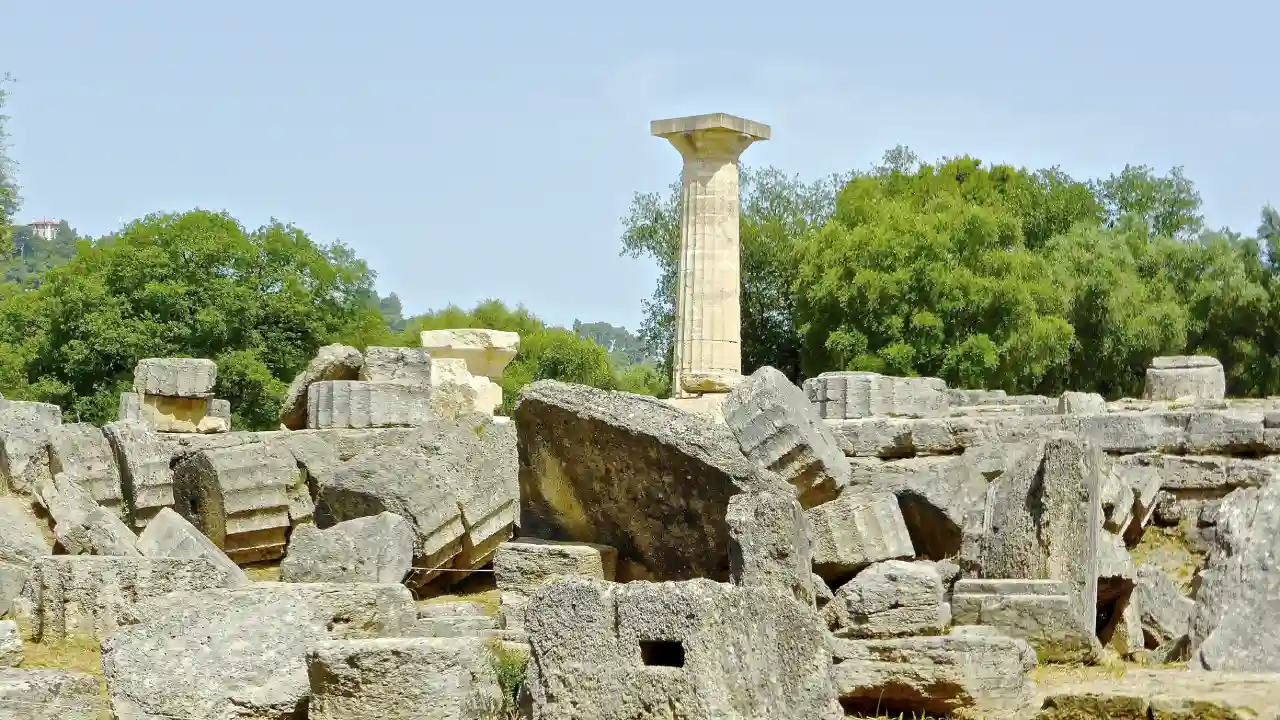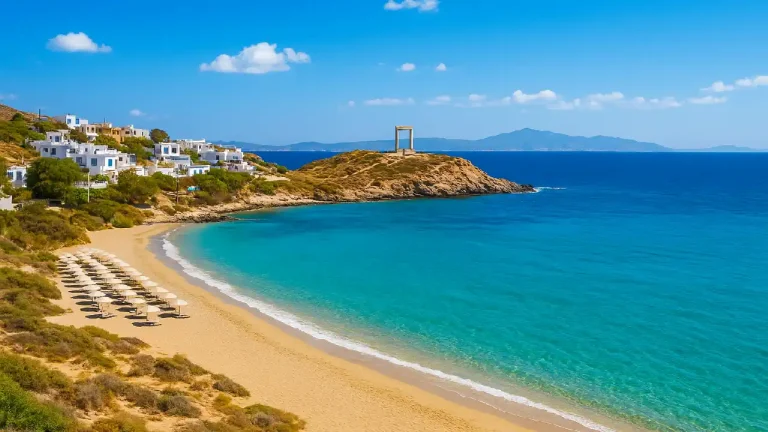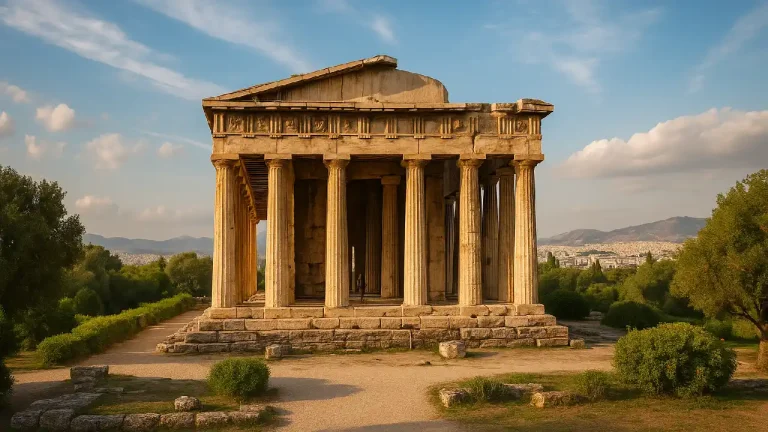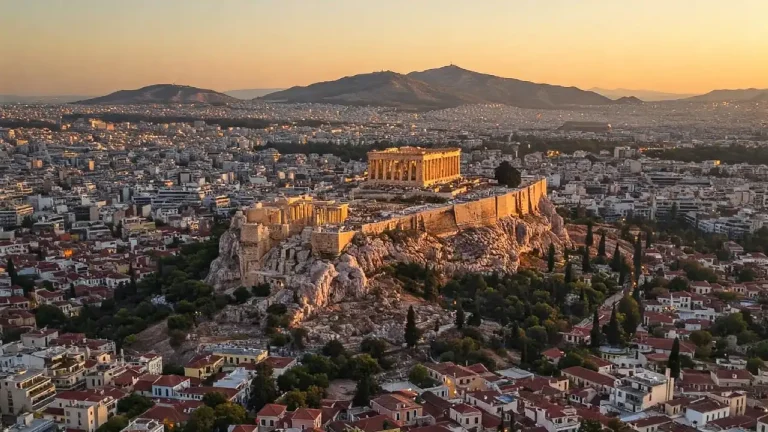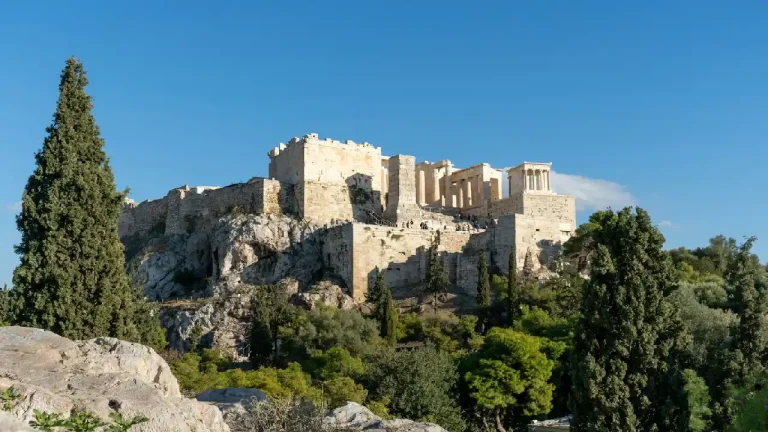Historical Sites in Greece: Which One Tops Your List? Cast Your Vote!
Greece is renowned for its rich history and stunning archaeological sites. From ancient temples to majestic ruins, Greece offers a treasure trove of historical landmarks. In this article, we will explore some of the most famous historical sites in Greece. After reading, don’t forget to cast your vote on which site tops your list!
The Acropolis of Athens
Perched on a rocky hill above Athens, the Acropolis is among Greece’s most renowned historical landmarks. This site houses several ancient structures of immense architectural and historical value, with the Parthenon, a temple devoted to the goddess Athena, being the most celebrated. Built in the 5th century BCE, the Parthenon exemplifies the glory of ancient Greek architecture.
The Acropolis has been a symbol of Athens’ cultural achievements for centuries. Visitors are awestruck by the grandeur and historical importance of this site. With its stunning views of Athens and its well-preserved structures, the Acropolis remains a must-see for any traveler.
Delphi: The Navel of the World
Delphi, situated on the slopes of Mount Parnassus, was once considered the center of the world in ancient Greek religion. It was home to the Oracle of Delphi, where the priestess Pythia would deliver prophecies. The Sanctuary of Apollo, the Temple of Athena Pronaia, and the ancient theater are key attractions here.
Walking through Delphi, visitors can feel the mystical atmosphere that once enveloped this sacred site. The ancient Greeks believed that Delphi was the meeting point of heaven and earth. This historical site offers a unique blend of natural beauty and ancient mystery, making it a favorite among history enthusiasts.
Olympia: Birthplace of the Olympic Games
Olympia, located in the Peloponnese peninsula, is celebrated as the birthplace of the Olympic Games. The ancient stadium, the Temple of Zeus, and the Temple of Hera are notable landmarks. The Temple of Zeus once housed the statue of Zeus, one of the Seven Wonders of the Ancient World.
Olympia’s significance goes beyond sports; it was a major religious center dedicated to Zeus. Today, the Olympic flame is lit here before the start of each modern Olympic Games, maintaining its historical legacy. Visitors to Olympia can explore the ruins and imagine the ancient athletes competing in this hallowed ground.
The Palace of Knossos
The Palace of Knossos, located on the island of Crete, is the largest Bronze Age archaeological site in Greece. It is associated with the legendary King Minos and the myth of the Minotaur in the labyrinth. Excavated by Sir Arthur Evans in the early 20th century, Knossos provides insights into the Minoan civilization.
The palace complex is remarkable for its size and sophistication. Frescoes, pottery, and complex architectural features reveal much about Minoan life and culture. Visitors are fascinated by the myths and legends linked to Knossos, making it a captivating historical site.
Meteora: Monasteries in the Sky
Meteora, located in central Greece, is famous for its monasteries perched atop towering rock formations. These monasteries were built between the 14th and 16th centuries and are still inhabited by monks. The unique location and architecture of Meteora make it one of the most awe-inspiring sites in Greece.
The monasteries were constructed to serve as places of solitude and spiritual retreat. Visitors can tour several of these monasteries, marveling at their construction and the panoramic views. Meteora is a UNESCO World Heritage site and continues to be a significant religious and historical landmark.
Mycenae: The Legendary City of Agamemnon
Mycenae, located in the northeastern Peloponnese, was a major center of Greek civilization during the second millennium BCE. It is associated with King Agamemnon, a key figure in Greek mythology and the leader of the Greeks during the Trojan War. The Lion Gate, the Treasury of Atreus, and the Cyclopean walls are among the notable structures.
Exploring Mycenae, visitors are transported back to the era of Homeric epics. The archaeological finds, including gold masks and elaborate tombs, reveal the wealth and power of Mycenaean Greece. Mycenae’s historical significance and legendary status make it a compelling destination.
Cast Your Vote!
After exploring these magnificent historical sites, it’s time to decide which one tops your list. Each site offers a unique glimpse into Greece’s ancient past and showcases the incredible achievements of its early civilizations.
Whatever your preference, cast your vote and let us know which historical site in Greece tops your list. Your opinion matters and helps us understand what captivates history enthusiasts the most.
Conclusion
Greece’s historical sites are a testament to its rich cultural heritage and the enduring legacy of its ancient civilizations. Each site offers a unique journey through time, providing insights into the lives and beliefs of the people who once inhabited these lands. Whether you are drawn to the grandeur of the Acropolis, the spiritual significance of Delphi, the historical importance of Olympia, the myths of Knossos, the serene beauty of Meteora, or the epic tales of Mycenae, Greece has something to offer every history lover.
Don’t forget to cast your vote and share your thoughts on which historical site in Greece tops your list. Your vote helps celebrate and preserve the legacy of these extraordinary places.

